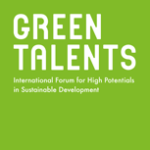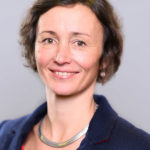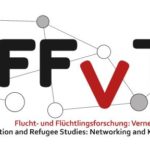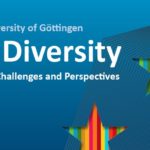Keynote by DIE Director Anna Katharina Hornidge at the Green Talent Awards Ceremony

The Federal Ministry of Education and Research (BMBF) has selected 25 female and male scientists as up-coming „Green Talents“ in an international competition for young scientists. The applicants from 22 countries are now among the 280 winners of the Green Talent Award. DIE-Director Anna-Katharina Hornidge presented a keynote speech on the topic „Refigurations of Modernity. Challenges of Susainability Research“ during the online ceremony.
Anna-Katharina Hornidge participating as an expert in the workshop „European Science Diplomacy: Nexus Science Policy/Society

Anna-Katharina Hornidge participated in the workshop of the Federal Ministry of Education and Research (BMBF) as an expert on the topics „Environment and Sustainability“. The participants focused on the success factors and challenges for an efficient knowledge-transfer from science to foreign policy – including a special focus on international research. Like many other formats, this online-workshop took place under the overall theme of the Covid-19 pandemic as an example of the urgency of global crises that need to be addressed by the international community. The panel with Anna-Katharina Hornidge focused in particular on questions relating to the environment, the climate crisis and sustainability development. Recommendations for action for politics, science, business and society were discussed, as well as the necessity of actively transferring existing knowledge from research and development into political processes.
Keynote of DIE-Director Anna-Katharina Hornidge at the Workshop of Escape and Refugee Research: Networking and Transfer (FFVT)

The FFVT invited to a workshop on „Local integration of refugees in light of the Agenda 2030“ on November 5, 2020. Anna-Katharina Hornidge opened the two-day workshop with her keynote „Displacement in the global realm and the role of development research in the 21st Century“. The participants discussed the question of a paradigm shift: Instead of keeping refugees in camps, the countries concerned are called upon to promote the local integration of migrants. Several refugee receiving countries, particularly in Africa and the Middle East, have begun to implement this approach. However, this does not automatically remove all barriers; imparting knowledge of understanding, implementation and national institutional arrangements pose additional challenges, as Anna-Katharina Hornidge emphasised in her presentation. The aim of the FFVT project is to network scientific activities in these areas and thus increase the visibility of research on refugees and forced migration in Germany, and internationally. To this end, the dialogue between science, practice, media and politics is to be promoted.
„United in Diversity“ Conference initiated by the University of Göttingen – Keynote by Anna-Katharina Hornidge

In view of Germany’s Council presidency in the EU, the University of Göttingen and its partner universities held a conference on „United in Diversity: A Europe of Sustainability – Challenges and Perspectives“. Three parallel workshop sessions, each with two webinars, followed interdisciplinary approaches and dealt with various sustainability issues. Some focused on ecological and economic matters, while other workshops paid attention on social and political aspects. DIE Director Anna-Katharina Hornidge presented a keynote addressing „Global Megatrends & ,the Future we want’“, in which she outlined wide-ranging global trends, such as the different scenarios of global climate change in relation to successful CO2 reduction or the changing ecological conditions in fisheries as an example of over-exploitation. These trends are thus both at the same time: a look into the future, but a warning.
Imme Scholz in a radio report on the topic „Quo vadis, Europe? EU development policy after Covid-19“

In the webinar „Quo vadis, Europe? EU Development Policy after Covid-19“, initiated by the Austrian Research Foundation for International Development (ÖFSE), Imme Scholz spoke about the serious consequences of the Covid-19 pandemic for the countries of the Global South. Together with Robert Kappel and Johannes Trimmel, Imme Scholz debated Europe’s responsibility with regard to the economic and social consequences of the pandemic, international cooperation in combating these consequences, and the national focus on pandemic operations and unilateral political action. The international community must address the question of whether the sustainable development goals (SDGs) can still be achieved worldwide and accordingly also in the countries of the Global South – because after all, the Covid-19 crisis has thrown developments back by a substantial amount. Imme Scholz outlined the interruption of the multilateral action process as one of many factors that will complicate the implementation of SDGs. The interruption of supply chains and other economic sectors also contributes to a slowing-down of development processes. The contents of the debate were recorded in a radio contribution/podcast format and can thus be listened to by all in a condensed version.

Schreibe einen Kommentar